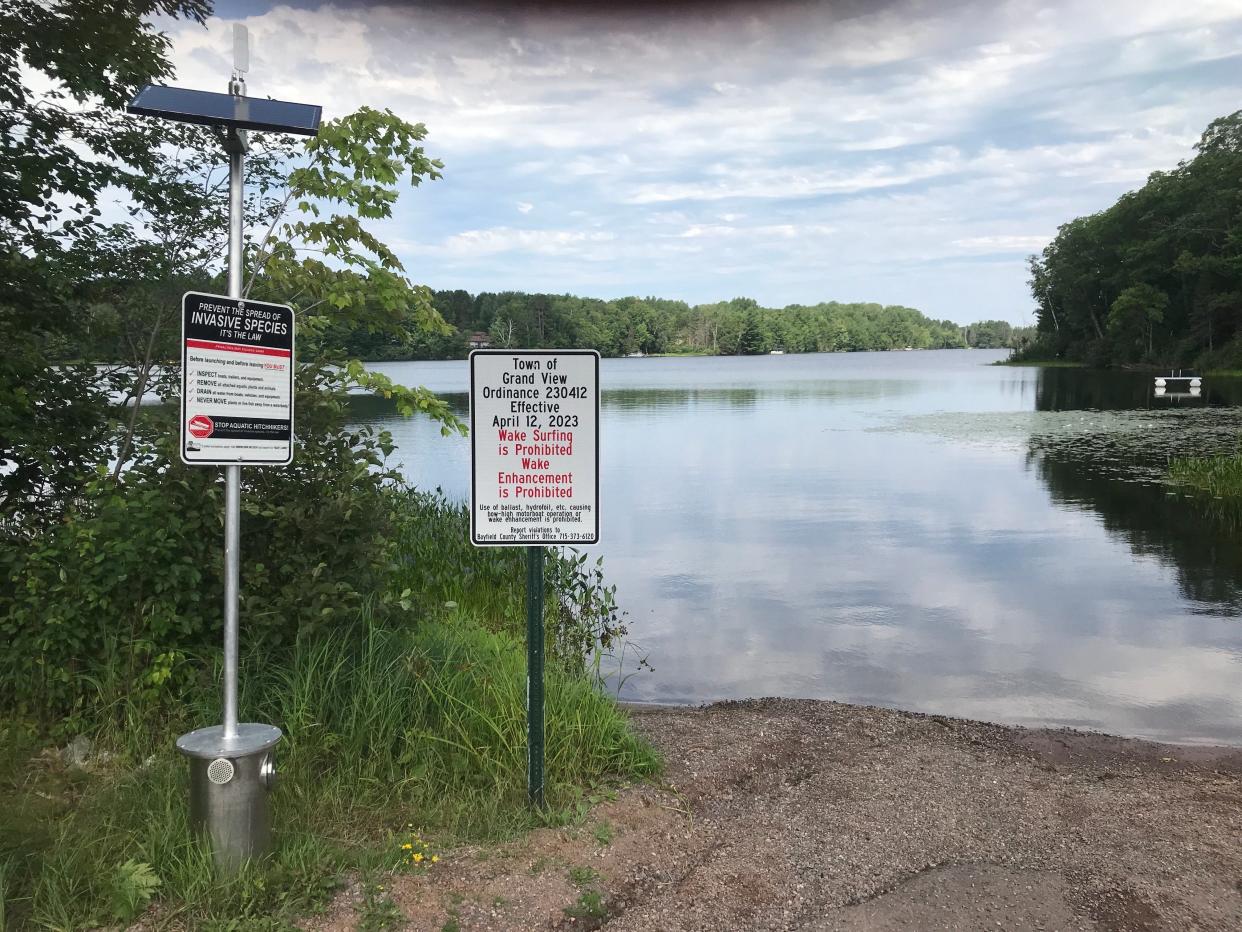Smith: Spring hearings provide latest landslide call for action on wake-enhanced boating

It can be challenging to get an accurate gauge of public sentiment.
Just ask professional pollsters who wade into political waters. To be fair, the roughly 50:50 split in many elections makes predictions about as accurate as a coin toss.
But an issue in the Wisconsin outdoors has emerged in recent years that leaves no doubt about how a strong majority of state residents feel.
I'm talking about wake-enhanced boating, or wake surfing.
Wake boats are power craft with special ballast tanks designed to increase their displacement and create larger than normal waves for surfing or tubing. Several thousand pounds of lake water are commonly taken into the tanks to increase the wake.
The waves are large enough to allow surfers to follow the boat without a tow rope.
Wake boats are typically very expensive, often more than $100,000, and while they aren't the most common vessels on Wisconsin waters they are increasing in number. Over the last decade the wake boat category has recorded double-digit annual sales gains, according to many boating industry sources.
And you better believe it, wake boats are drawing attention.
Concerns raised over ecological damage, conflicts with other lake users
While the boats provide a new option for water sports enthusiasts, the large wakes and powerful downthrusts raise concerns of ecological damage, shoreline erosion and conflicts with other lake users.
In addition, there are concerns about aquatic invasive species being spread between lakes via the boat's ballast tanks. In February a group of Wisconsin citizens filed a petition with the Department of Natural Resources in an effort to require wake boats to stay on a single waterbody or prove they were decontaminated before moving.
A non-profit group, Lakes At Stake Wisconsin, even formed in 2023 to address wake surfing concerns.
Calls for restrictions or prohibitions on wake-enhanced boating have been on full display over the last six months in Wisconsin, including at public meetings in Oneida and Vilas counties and in the Town of Farmington on the Waupaca Chain O' Lakes in Waupaca County.
State residents vote on wake surfing issues
And in two cases in April - one the annual Wisconsin Conservation Congress and DNR spring hearings, the other a petition in Waupaca County - tallies of votes have shown how state residents feel about wake surfing issues.
The numbers make the term "landslide" feel inadequate.
In the recently completed 2024 spring hearings, three questions were asked regarding wake surfing.
Question 32 asked if the public supported a statute to prohibit wake boat ballast systems on Wisconsin's lakes and rivers. Among Wisconsin residents who expressed an opinion, the vote was 10,002 yes, 3,715 no, or 73% in favor.
Question 42 asked if ballast systems in boats should have a practical means of inspecting the system to confirm no water is retained after draining. The tally was 9,448 yes, 3,777 no, or 71% support.
Question 43 asked if a statute should be created to prohibit wake-enhanced boating on lakes smaller than 1,500 acres, in water less than 20 feet deep and within 700 feet of shore and other lake users. It was 10,274 yes, 3,363 no, or 75% in favor.
Similar majorities supported wake-surfing bans or prohibitions in five questions asked at the 2023 spring hearings. To highlight just one from that year: should wake surfing be banned on lakes smaller than 1,500 acres? The tally was 5,989 yes, 2,632 no, or 69% support.
And in a separate gauge of public opinion on wake-enhanced boating last month, a petition in Waupaca County found an even higher majority of support for a wake-enhanced boating ban.
The petition was circulated to residents in the Town of Dayton. It asked if an ordinance should be enacted to prohibit use of "enhanced wake devices" on Columbia, Long, Stratton and Spencer Lakes in the town.
As of April 11, the result was 667 agree, 26 disagree, or 96% in favor.
"Our small lakes simply cannot handle the operation of wake-enhancing devices," said Brian Fielkow, whose family has had a home on Long Lake since 1972. "No matter how well-intentioned someone may be when using a wake boat in wake-enhanced mode, it’s impossible to operate them safely on our lakes."
Local residents are working to get a wake surfing ordinance in place in the Town of Dayton, and to restore one in the adjoining Town of Farmington. The towns share some waters on the Waupaca Chain O' Lakes.
18 ordinances enacted
As of this spring 18 ordinances had been enacted by municipalities to prohibit or restrict wake-enhanced boating, according to the Last Wilderness Alliance, a Presque Isle-based non-profit working to assist state residents in creating ordinances.
But many thousands of small lakes in Wisconsin lack protection and likely will until the Legislature takes statewide action.
Last session the Republican-controlled Legislature bailed on any effort to address the issue. Three bills related to wake-enhanced boating were introduced; none received even a hearing.
Only one, introduced by Sen. Andres Jacque (R-De Pere) would have restricted wake surfing. It would have prohibited the activity on lakes smaller than 1,500 acres and on larger lakes required wake-enhanced boats to operate at least 700 feet from the shoreline and at least 700 feet from any boat, swimmer, or other water user.
As shown by recent voting results, that's the kind of proposal Wisconsinites support.
You can bet legislators will be getting an earful from constituents to do something on wake surfing in the 2025-26 session.
In the political world, winning 55% of the vote is often called a landslide. I think Wisconsin legislators should consider the 70% support for restrictions on wake-enhanced boating as a mandate.
Smith: Tagging study will answer questions and drive important decisions on Green Bay walleye fishery
More: Sad ending for great-horned owl nest in flower pot in West Bend
This article originally appeared on Milwaukee Journal Sentinel: Wisconsin 2024 hearings a call for action on wake-enhanced boating

